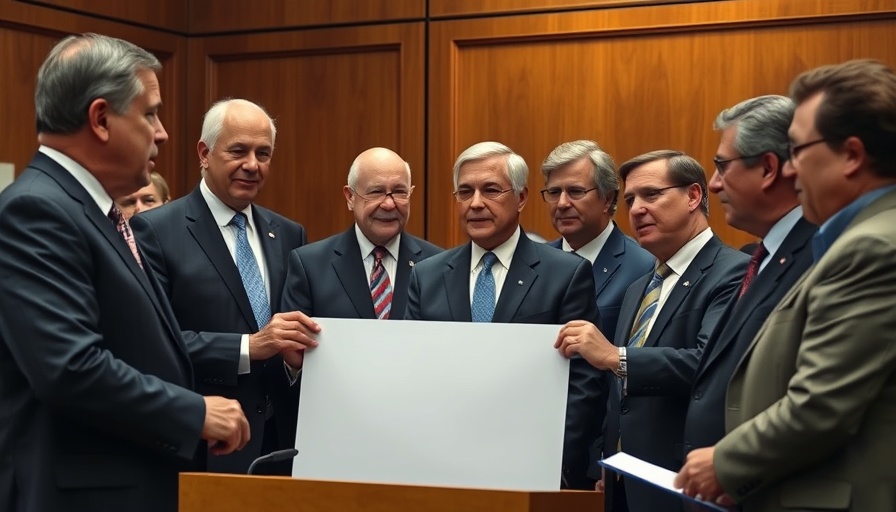
A Crisis Awaits: The Plight of Rural Hospitals and Medicaid Cuts
In the unfolding narrative of healthcare reform, rural hospitals are bearing the brunt of impending Medicaid cuts, with 338 facilities identified as being at risk of closure, conversion, or severe service reductions. A recent analysis from Democratic senators highlights that the majority of these hospitals serve a significant number of Medicaid patients. In states like Alabama and Tennessee, nearly 20% of rural hospitals are in dangerous financial territory, showcasing the fragility of rural healthcare infrastructure.
The Impact of Policy: What the Reconciliation Bill Entails
The reconciliation bill, popularly dubbed the One Big Beautiful Bill Act, proposes stringent regulations affecting Medicaid beneficiaries. The proposal necessitates that individuals log work, volunteer, or educational hours to maintain their coverage, which poses a daunting challenge for many already struggling with job stability. Even though most enrollees are employed, the administrative burden could lead to millions losing their Medicaid coverage—approximately eight million, as projected by experts.
The Consequences for Rural Healthcare: A Look Ahead
As these potential cuts loom, experts predict dire consequences for rural healthcare systems. The Congressional Budget Office warns of a staggering increase in uninsured individuals, potentially disenfranchising rural patients who rely heavily on these facilities. Many hospitals, especially rural ones, are already grappling with financial difficulties, thereby risking a domino effect that could cripple healthcare access in underserved areas.
A Call to Action: The Need for Community Awareness
Understanding the intricacies of how Medicaid cuts could jeopardize rural hospitals is vital, as well as encouraging community dialogue about potential solutions. Consumers and advocates alike have the power to support policies that prioritize health equity and safeguard essential services in rural communities. Engaging with local representatives, raising awareness on social media, and participating in local health initiatives can amplify these critical issues.
Final Thoughts: The Importance of Community Health
Rural hospitals play an indispensable role in the healthcare ecosystem. As stakeholders in the health and wellness of our communities, staying informed and proactive can foster resilience in an uncertain policy landscape.
 Add Row
Add Row  Add
Add 




 Add Row
Add Row  Add
Add 



Write A Comment